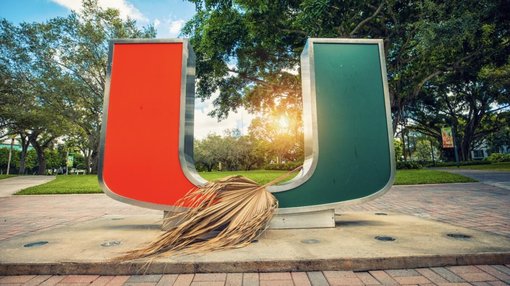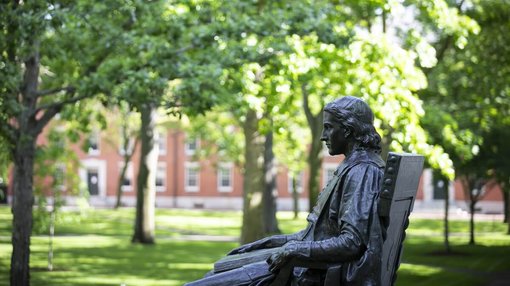Bipartisan Commission Calls for Sending One Million College Students Abroad Annually by 2017
Archive by Erudera News Nov 14, 2005

WASHINGTON, D.C., Nov. 14, 2005 – A special commission appointed by Congress and the President has recommended boosting the number of American undergraduates who study abroad to one million annually by the year 2017, saying such a move is critical in furthering U.S. interests globally.
“Study abroad is not a frill. Greater engagement of American undergraduates with the world around them is vital to our nation’s national security, economic competitiveness, and public diplomacy,” said M. Peter McPherson, chair of the Commission. He added that reaching the one-million student goal will require increasing the current annual growth rate in the number of students studying abroad by some 50%. “The only way we will reach this goal is if we invest in this fellowship program now,” McPherson said.
“Today, America’s national security, and our competitive ability, are increasingly dependent on our relations and understanding of the rest of the world,” said Senator Richard Lugar, Chairman of the Senate Foreign Relations Committee. “Educational exchanges with foreign countries and the study of foreign languages are essential to our cultural diplomacy and an excellent way for young people to gain valuable experience that will aid them throughout their lives.”
“Just as President Lincoln opened up higher education to the nation through the establishment of land grant colleges and universities, study abroad must be made more available and affordable to all students,” noted William DeLauder, the Commission’s executive director and President Emeritus of Delaware State University. “Democratizing undergraduate study abroad is the next step in the evolution of American higher education.”
Commission member William E. Troutt, president of Rhodes College in Memphis, Tenn., agreed. “This goal is well within our grasp,” he said. “Some  of our finest colleges and universities are committing themselves to making study abroad a degree requirement for all students. At Rhodes, we have moved in that direction by adopting a curriculum that ensures that all students graduate proficient in a second language and with the ability to view the world through more than one cultural perspective. With encouragement at the federal level we can envision a day when study abroad is the norm, not the exception, for college students.
of our finest colleges and universities are committing themselves to making study abroad a degree requirement for all students. At Rhodes, we have moved in that direction by adopting a curriculum that ensures that all students graduate proficient in a second language and with the ability to view the world through more than one cultural perspective. With encouragement at the federal level we can envision a day when study abroad is the norm, not the exception, for college students.
The goal of one million students is approximately half the number of bachelor’s and associate degrees awarded annually.
The bi-partisan Commission on the Abraham Lincoln Study Abroad Fellowship Program called on the President and Congress to make $50 million available annually beginning in 2006 to fund a Lincoln Fellowship Program that would provide a national competition for student fellowships and also provide funds directly to colleges and universities to support their study abroad programs. The funding would increase incrementally over five years until it reaches $125 million annually in 2011 and successive years.
International education and study abroad programs have had significant success preparing internationally competent graduates, with more than 190,000 American undergraduates studying abroad annually. However, the demographic profile of these students does not match that of American undergraduates.
These students are predominantly female, white, and from four-year colleges and universities. Representation from minority, male, and less-affluent students – as well as from community colleges – lags behind. Fully two thirds of Americans studying abroad do so in Europe, with fewer students studying in large and often strategically important parts of the world such as Latin America, Africa, the Middle East, and the former Soviet Union.
In addition to the one million students goal, the Commission’s report sets forth several objectives for the Fellowship Program, including:
- Increasing student diversity in study abroad by ensuring that the demographics of U.S. students studying overseas is similar to those of the U.S. undergraduate population
- Greatly increasing the number of students studying in non-traditional countries
- Increasing the number of study abroad students enrolled in community colleges, minority serving-institutions, and institutions serving large numbers of low-income first-generations students
- Requiring Fellows to participate in academic credit-bearing programs of high-quality
- Looking after issues of student health, safety and security
The Commission recommends that at least 88% of the funds allocated to the program go directly to student fellowships. Fellowship amounts would total as high as $5,000 per student and be limited to one year. Awarding fellowships through both a national competition and through funding to colleges and universities is intended to make sure that every undergraduate has an opportunity to become a Lincoln Fellow, while also ensuring that existing study abroad programs are fully leveraged. Fellowships would only be awarded for study, work, research or internships that are conducted outside the U.S. and for which academic credit is awarded.
 “It is my hope that the work of the Lincoln Commission, as well as future action by Congress and the President, will motivate a much higher percentage of young Americans to experience other cultures,” says Robert Coombe, chancellor of the University of Denver, where the percentage of students adding international study to their college experience has doubled in recent years. “Studying abroad is a critical part of preparing for an ever-changing world.”
“It is my hope that the work of the Lincoln Commission, as well as future action by Congress and the President, will motivate a much higher percentage of young Americans to experience other cultures,” says Robert Coombe, chancellor of the University of Denver, where the percentage of students adding international study to their college experience has doubled in recent years. “Studying abroad is a critical part of preparing for an ever-changing world.”
For several years before his death in December 2003, Senator Paul Simon worked with the international education community and Congressional leaders to create a new Abraham Lincoln Study Abroad Fellowship Program. In January 2004, an omnibus appropriations bill created this Commission to examine the concept of dramatically increasing the number of Americans studying abroad.
“Having the President and Congress carry out the recommendations set forth in this report is a fitting tribute to a great American president– Abraham Lincoln – and the next step in the democratization of higher education,” noted McPherson.
Recent Articles
United States
Apr 17, 2024
United States
Apr 17, 2024
United States
Apr 17, 2024
Germany
Apr 16, 2024
United Kingdom
Apr 15, 2024


